 “Information is not knowledge.” – Albert Einstein
“Information is not knowledge.” – Albert Einstein
I have noticed there are those who are very knowledgable about Multiple Myeloma and there are those who have information, and then there are those who have a very superficial understanding. I have also noticed that sometimes it’s the patient, sometimes the caregiver, but rarely is it both who have a pretty good understanding of the basics and beyond. I have also noticed that some, either with information or knowledge, get annoyed with those that can’t keep up. Like it’s a crime. And even those who challenge their doctors assessment of the reports, continually.
Where are you in that spectrum of patient/caregiver partnership is often, I find, a function of what works best for you and the patient. It is, in my humble opinion, very difficult for both to have their sleeves rolled up and attacking the subject of myeloma with a feverish frenzy. One is in treatment and feels like total crap. The other is trying to get them there and keep them alive, parrying between whether to worry about the side effects and what, if anything, to do. Not too mention all the things that you had going on in your life with jobs, children, homes to run. Young children, elderly parents, your own health issues perhaps. It’s like someone just put a stack of elephants to balance on your already full life!
So, personally, I get a distressed when folks get annoyed with others who seem blissfully ignorant about the nuances of their disease. Reading every lab report and scrutinizing the slightest upward or downward movement in the many things that are monitored. I have had people ask me about Dave’s labs and different things about his MM presentation. Honestly, I have to look. I came to know a general understanding. I didn’t want to focus on all of it, I wanted to focus on what I needed to know, which is not all of it. There is no way I could put it all into a broad context of a MM patient. That takes years of experience, not too mention medical school. I kept up with his WBC, his blood pressure, oxygen levels, infection. I wanted to know if he was progressing and reacting in the fashion that they expected. I trusted fully that they knew what they were doing and I would engage them in conversation that helped to enlighten me on the process. Not a bullet list of questions, but in the social context of visiting the infusion center everyday and seeing our APN. Letting them tell me how Dave was doing and then maybe asking about something I was “curious about”. Generally when I thought something was needing attention, the staff readily agreed and was already moving forward. I found that very validating actually. When I called for guidance in the middle of the night, apologizing for waking them up, they were always very gracious and assured me that calling them was exactly the right thing to do and how to proceed from there. The knowledge I needed and wanted wasn’t whether Dave was IgG Lambda, but whether there was something that needed immediate attention or was normal and he was doing just fine. Normal in the context of nothing about this was at all normal for us!
“Diseases of the soul are more dangerous and more numerous than those of the body.” – Cicero
I think it’s good to have a working understanding of myeloma and what is going to happen to you in treatment and recovery, generally speaking. Focusing on getting through is, to me, far more important than being able to hold a toe to toe conversation with your physician on the subject of your disease. I don’t NEED to know all that they know. I need to know enough to be compliant with the program, say no to stuff that I feel is unnecessary or overkill and be able to hold my position, while being willing to be enlightened if it is dangerous to opt out of something. But most importantly, I think, is to assemble a “team” that I value and trust to work with us, to advise and educate. Allowing your team to perform their roles and functions vs. being a manager who bypasses everyone thinking we know more and can do it better. All which may be true, but is not at all good management skills on any legitimate level.
Dave is behind the learning curve on his disease. I have liked that he now asks me questions about it. At the time of his diagnosis and throughout treatment, why was it me that took the lead and Dave simply sat and allowed himself to be treated without a full understanding of what was going on? Because I had experience in these areas far better than he did. It was my strength. He surely could have done it, he is one smart guy. But in our own personal situation, we were trying to survive, not just to keep him alive, but to not be devastated financially. We had two kids in college and had just made a coast to coast move for his job that he had only been working in for 6 months before this happened. He makes a good living, but we aren’t wealthy. I wasn’t working because of the relo and how could I go out and get a job and take care of Dave at the same time? I certainly couldn’t come close to matching his salary. It was pretty frightening. I know you understand all too well how slammed you are when being treated and how much energy it takes to know so much. We CHOSE, through discussion at the outset, that Dave would TRUST me, his wife, to take care of ALL of this and Dave would focus on keeping his job responsibilities going with the best his chemo addled brain would allow. He was an expert in his field and never was this more apparent as he operated with both hands tied behind his back to get through. I rarely made unilateral decisions, but I was his trusted lieutenant. I did all the leg work. Gathering information from sources he knew and some he didn’t. Pulling in all my team to help me to figure out what was important and what wasn’t. I would then take in information I had gathered with a couple of well laid out options for him to consider, answering all the questions he had about what I was presenting to participate in the decision. This was the most efficient and expedient thing for the Puente Team to deal with MM and also all the other elements in our life that were of grave importance to us. Stripping it down to the bare bones of functionality.
So how is this wrong? I don’t think it is. To me, it is what a team does. I have met so many couples who have operated similarly. The patient may be the one who is digging in, rolling up his sleeves and getting into the heaviness of understanding his disease and treatment. But he too gets help, has a team, and his caregiver has a vital role to support him and be with him and listen to him as he parses through the piles of information. Is she a bad caregiver because she doesn’t know as much as he does? I don’t think so. I think we each have our gifts and our strengths that we bring to the table and that just because someone can believe they are talking circles around the doctors and others can’t, doesn’t mean we are somehow ignorant or inferior. Some patients who do this, from my observation, do it to survive. It is their coping mechanism. They are indeed often very helpful to all of us! And you know what, I totally understand. It’s the ones who think they should and it’s tearing them up that I counsel a different approach and relieve them of this burden.
I have yet to meet any pair that I’m annoyed with their lack of knowledge, information or understanding of their disease. What I SEE, is two people, who are working hard to survive and doing a damn fine job. I’m impressed, not whether you can assimilate the latest research paper and take a position on it, but more, how you are LIVING with your disease. When someone brings a problem to me, I am incredibly fulfilled if I can offer them some information, direct them to a study, or a person who knows far more than me, to help them get the answer they are looking for. I don’t have to know all the answers, but I’m very interested in knowing who does know. That is my strength and that is what I take comfort in.
So, keep doing what you are doing. What works for the two of you and your family. Remember not to get upset with the other if they aren’t as knowledgable as you. Enlighten and educate when appropriate. Ask if you don’t know. But unless you want to be a MM researcher, do your best to also enjoy your life, as many of you do. Riding bikes, writing blogs, books, running marathons (I’m so jealous of you Don!). Speaking, going to conferences and reporting back, participating in online forums. We need all your special gifts. And whether we agree or not, it is good to have the discussions. I learn so much from so many patients and caregivers by the questions they ask and the concerns they have. It continues to fascinate me.
Now that Dave has been in CR for a good stretch, I can see why he doesn’t have to know a lot, even though he is in better shape now to be educated. I’m happy that he has been asking and learning more about it. But now, honestly, I’m more concerned that he take precautions to keep himself well and not fall into the trap of thinking he’s like he used to be and not alter his “normal”. Keeping him working toward proper eating and traveling habits is far more critical than whether he can keep up with me or some of the ones way beyond me on his disease understanding. He knows enough. He knows there is no cure. He knows he responded well. He knows he has a decent shot of meeting the projection that UAMS/MIRT has laid out for him which is well beyond the 3-5 years still being suggested by oncologists. He knows he can relapse at anytime and he knows he might not for a good while. He knows that we will deal with whatever comes, when it comes, and not before. He’s in a good place. He is exceedingly happy. He cries when someone he knows with MM doesn’t make it. He’s happy to meet others with cancer or myeloma. He’s engaged in his life in a way he never was before. Dave has already beat MM, even if ultimately it takes him.










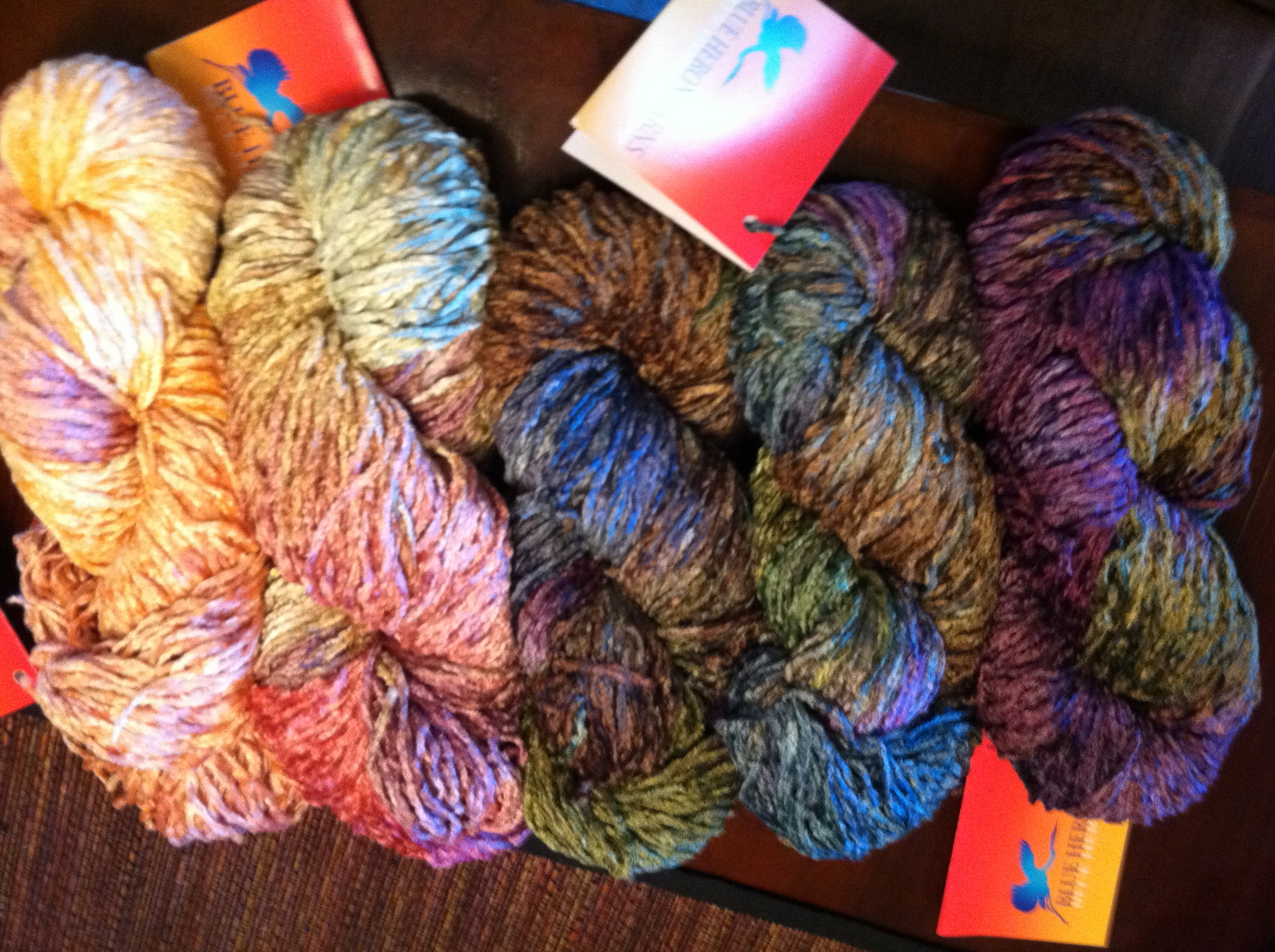


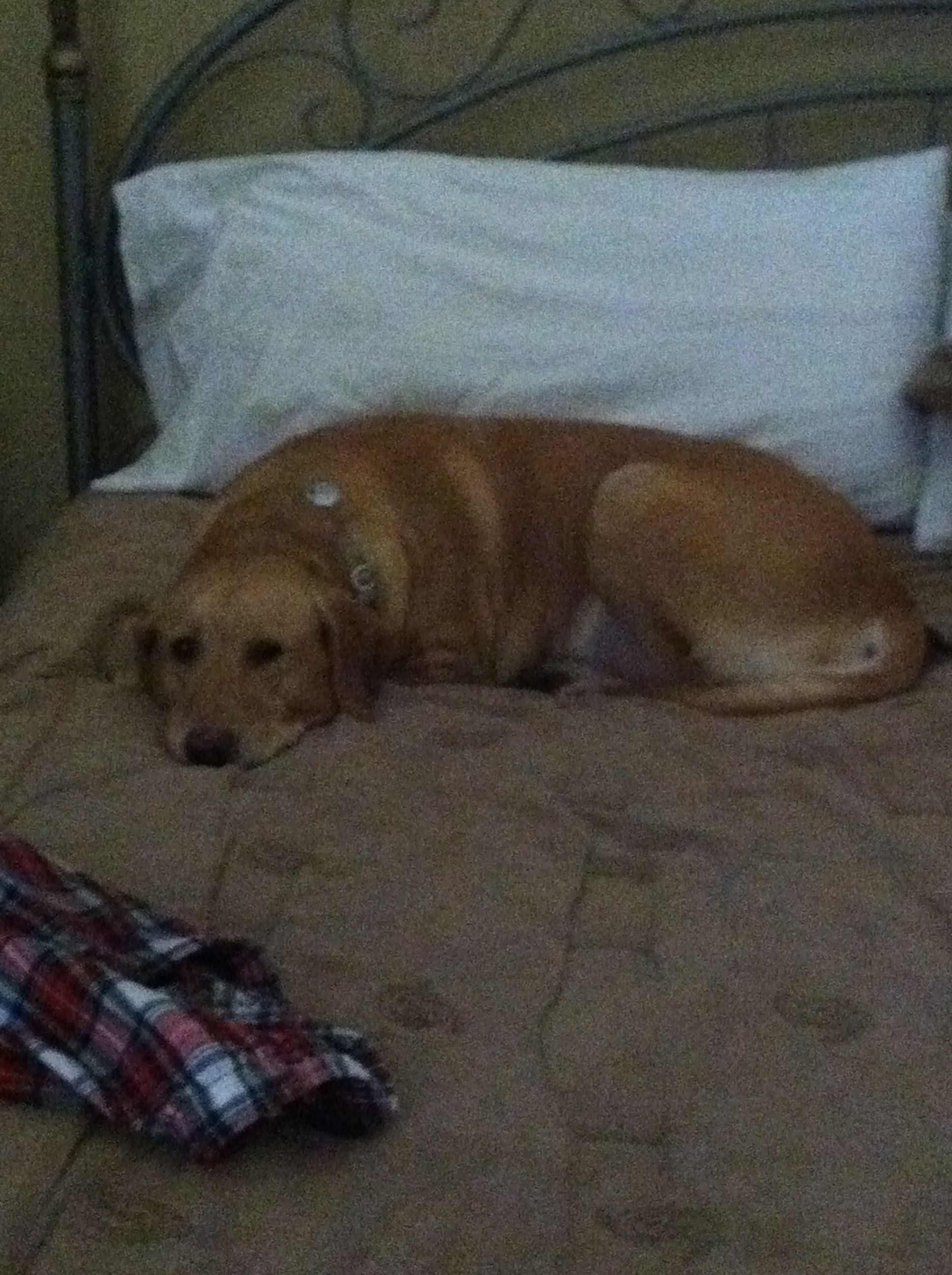


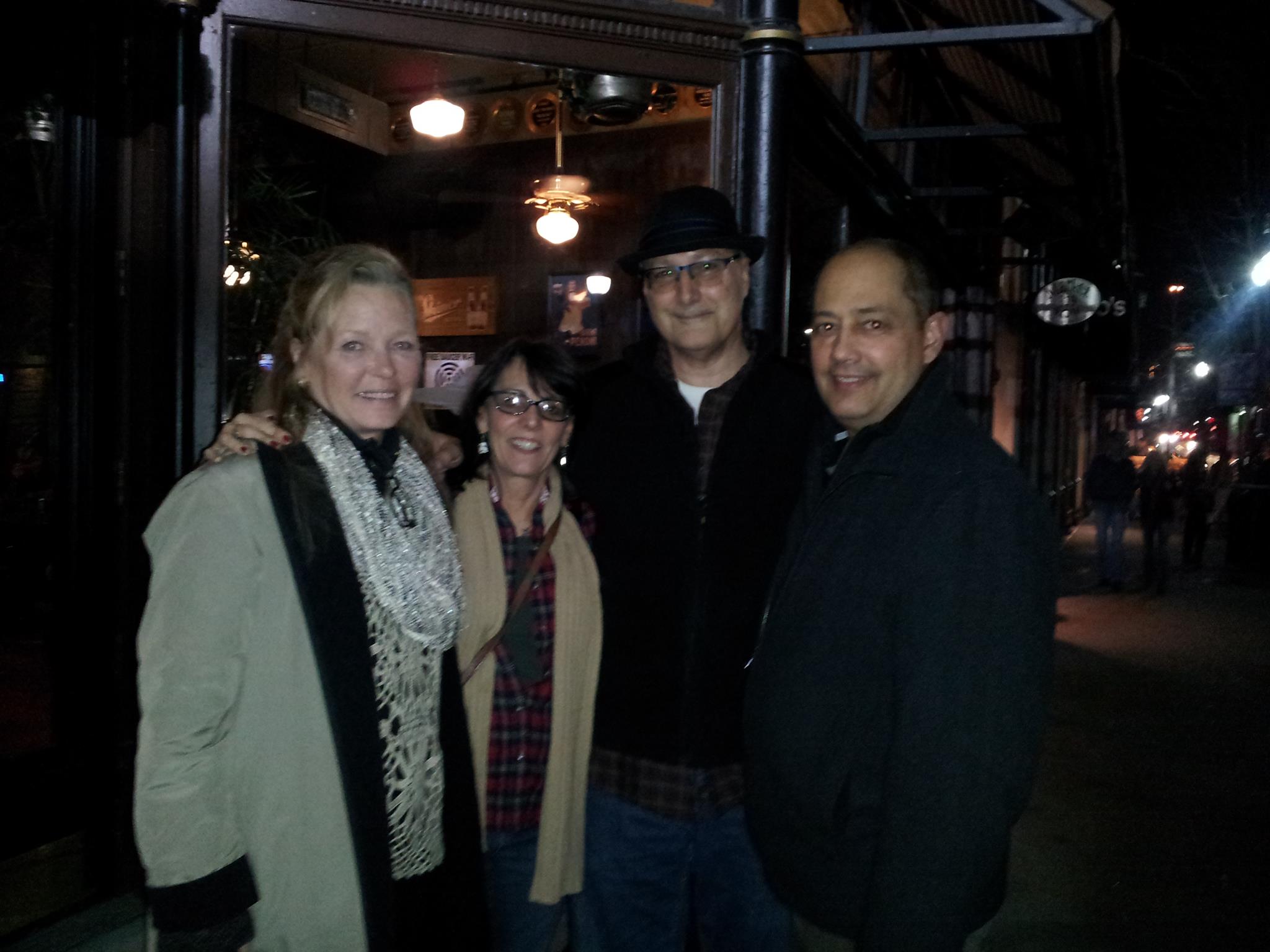
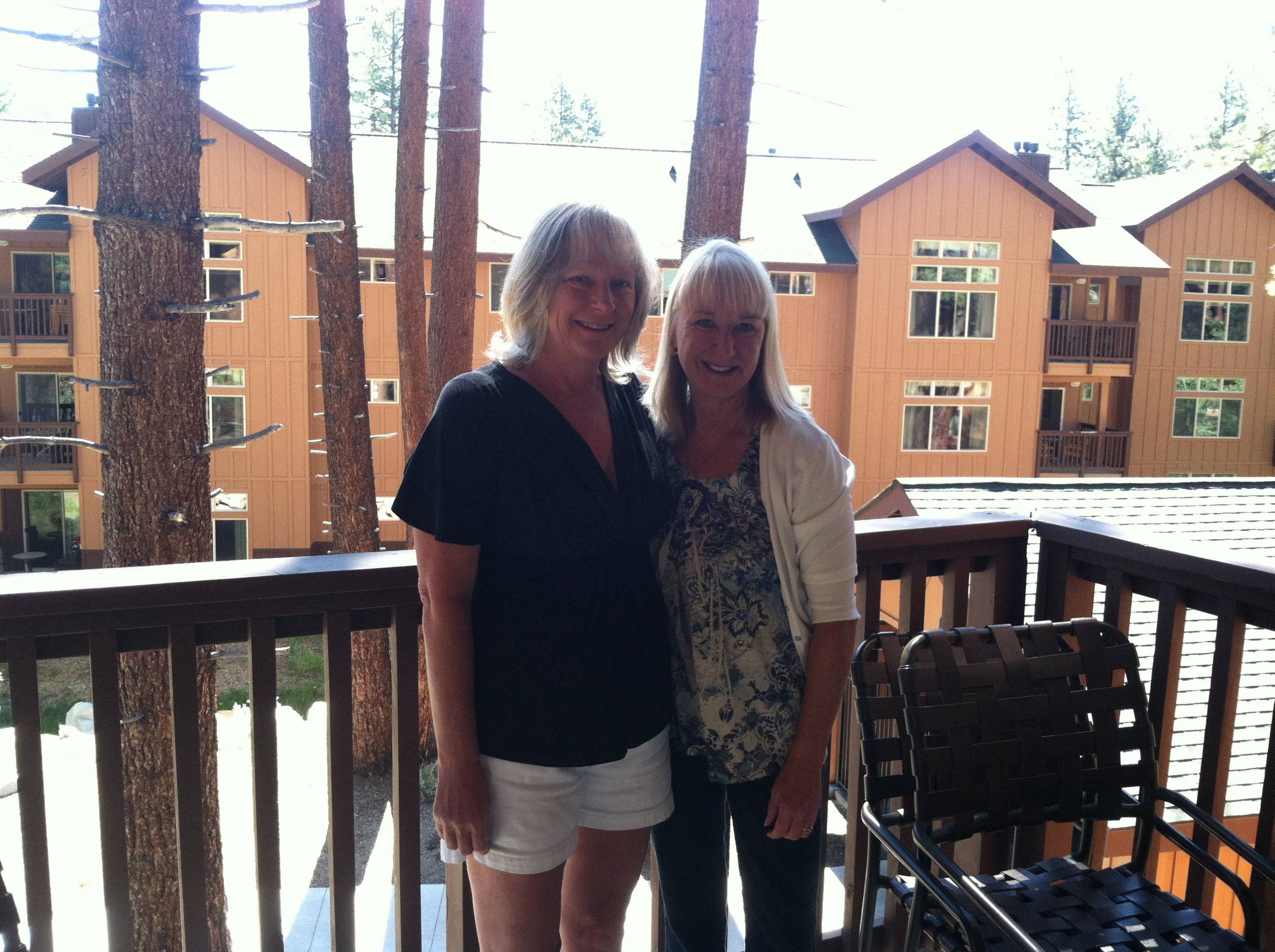
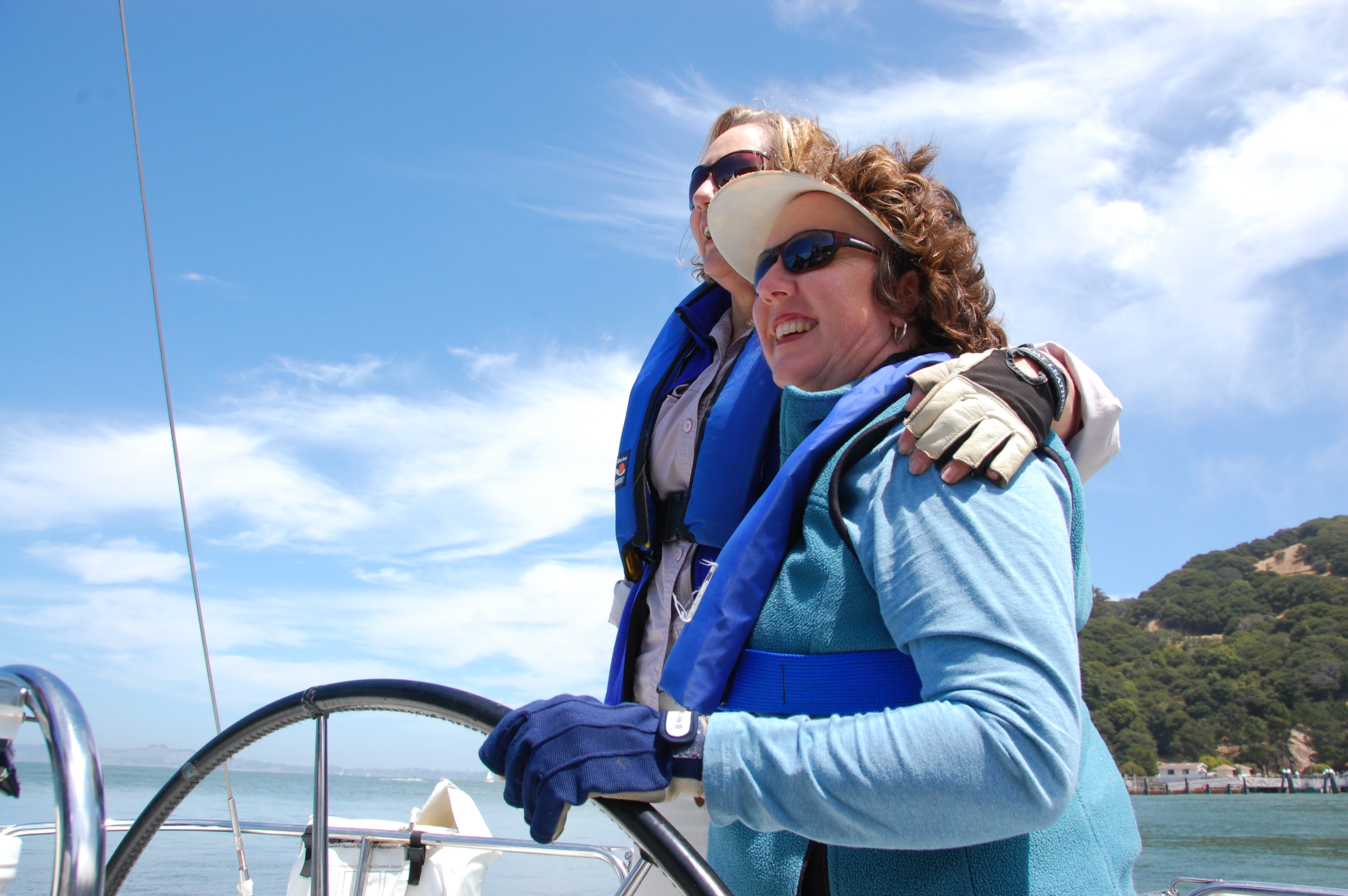


Lori,
What you write is inspiring. And a great help to all of us on the sharp end.
Thank you for extending both your helping hand to Dave, yourself and the others tuning in. Together, we are all made whole and happy– even with a big challenge.
Best for 2012.
My dear Paula, I am so thrilled to hear that you have moved through all of your treatment as I know you were anxious about it all. Well done! And if you get to the west coast, please do let me know. I’m in Sacramento, we have plenty of room for you, or we can meet up. It would be lovely, if only briefly. Hugs to Fernando. He was a worried, loving, caregiver who must be quite relieved to see you making some future plans!!!!
Thank you and thank you again. What a wonderful team you make!!! Fernando and I are doing fine. I’m in maintenance therapy in Biloxi MS…weekly velkade (sp) and dex. We will be back in Little Rock on 3 Mar 2012. I have so much chemo brain–my friend–pictures and my husband’s validation of events we’ve experienced in the past assures me. It makes for some great conversation and laughter. I am super emotional sometimes because I know what the stats say about the MM patient and I know what I might need to prepare for but just not today. (tears)
Our focus is on our family; my focus is on my husband and we are going to be out in CA sometime 2012 summer to see our oldest grandson; visit the little town called Tehachapi for a month or so…and hopefully a cruise out of LA. I would love to see the part of the world you hang out in…
My prayers are for all the caregivers, patients and family. I don’t have a nickels worth of scientific achievements or background that would hold water to anyone except the caregivers and other patients. I don’t have to be the one to know because thank the little Lord Jesus there is. I just get up in the morning say my thankful prayers, kiss my husband and try to make him the best breakfast ever. Next check the schedule and see what schedule my children have me on. (laugh) When all is said and done, I heavily rely on my gut feelings and my husband’s counsel…it’s been a great almost 35 years.
I love your writing Lori and for the reason it gives me hope and peace from a woman’s perspective. Thank and thank you again…love ya Paula
Thanks ladies for your insightful comments. And Karen, we will be praying for you and Hugh as you move from an extraordinary caregiver to a patient and your roles are reversed. I pray your tests turn out well in that it is a simple and easy breast cancer to get through. All things being relative, you understand. Start that blog girlfriend! I think you have a lot to offer in your own life’s experience as a hospice nurse, caregiver to Hugh and now as a patient.
as a caregiver for my husband, hugh, i think the thoughts you’ve offered about the role both partners end up playing is so cogent. i once came across a socio/psychological study that was fascinating. it dealt primarily with patients who show little or no desire to delve into the whys and wherefores of their disease process, and accepted that those on their care team were responsible for their treatment. at the end of the study, those patients were found to be on equal par with those patients who sought out as much info as possible about their illness. the authors spoke of what you did, lori – that it is not about avidance, ignorance, laziness, or passivity. it is about how differrently people COPE. hugh and i are lucky that way. he coped by being the patient, doing what he felt was required, but never seeking out info beyond that. hospice nurse that i am, my coping was fueled by knowing as much as possible pertaining to whatever was going on to be a competent advocate for hugh, but knowing were were blessed with the most knowlegable, compassionate, and cutting edge specialists; and i tried very hard to never run rough-shod over them, and to maintain both hugh’s and my trust in them. but stay tuned! now i am going to be the patient , diagnosed with breast cancer just one week ago. i am eager to see just what i will be learning on my new journey, one that now presents so many new challenges – how will it all play out? i’ll keep you posted. meanwhile, your’s and dave’s story has much to offer, as a view into how patient/caregiver roles evolve, and all the variations therein. thank you on behalf of others who have chosen a different path, one that works for them, and who deserve the compassion and thoughtfulness we all need.
i hope you, dave and your family have had a marvelous christmas day together. love, and hugs, and gratitude for taking on these issues and putting them out there for us to consider. karen
Yeah, Lori, there is a balancing act that goes on for the MM patient and his or her spouse, friend, family member, whomever is being an advocate. I think that is the one aspect that every MM fighter might consider important – having someone to listen, take notes, to be there when the treatment makes thinking clearly too hard and not everyone is fortunate enough to have a solid partnership to support them. I am not an active caregiver right now, thankfully, because my relative is having something akin to a partial response, but I pay attention because it seems that eventually with MM it becomes necessary to face down the Beast again.
I appreciate and respect your views on this subject and am glad you put them out here for contemplation… intending your holidays are filled with joyful events and memories!
Don’t get me wrong. I think it is important to know about your disease, treatments, etc. But I think it’s important to strike the right balance and that “right” balance is something that each of you need to define for yourselves. Respecting and enlightening each other is extremely important in my humble view. I work very hard not to become consumed with it. I could write multiple times a day about things I fine concerning MM or healthcare or studies. I choose not too. It is not how I want to spend my time. But I do make an effort to keep up and to keep current, in case, in the future, I need to know what our next step will be. But that step that Dave might need, most likely isn’t available yet and I’m blessed in that. So for now, I only need a superficial understanding of the current research because it is ever changing, and that too, is a blessing, because it is changing for the better. If it’s major news, you bet, I’m excited and all over it. But sometimes what I can get excited about, others can rip apart as being not what they want. Researchers are diligently working through the arduously slow process of human trials, while trying to secure funding so they can keep going. Garnering FDA approval and working with Pharmas to get the drugs to deathly ill patients now, under humanitarian loopholes. Oh yeah, and go home to their spouses and hopefully enjoying their children and friends somewhere in all of that.